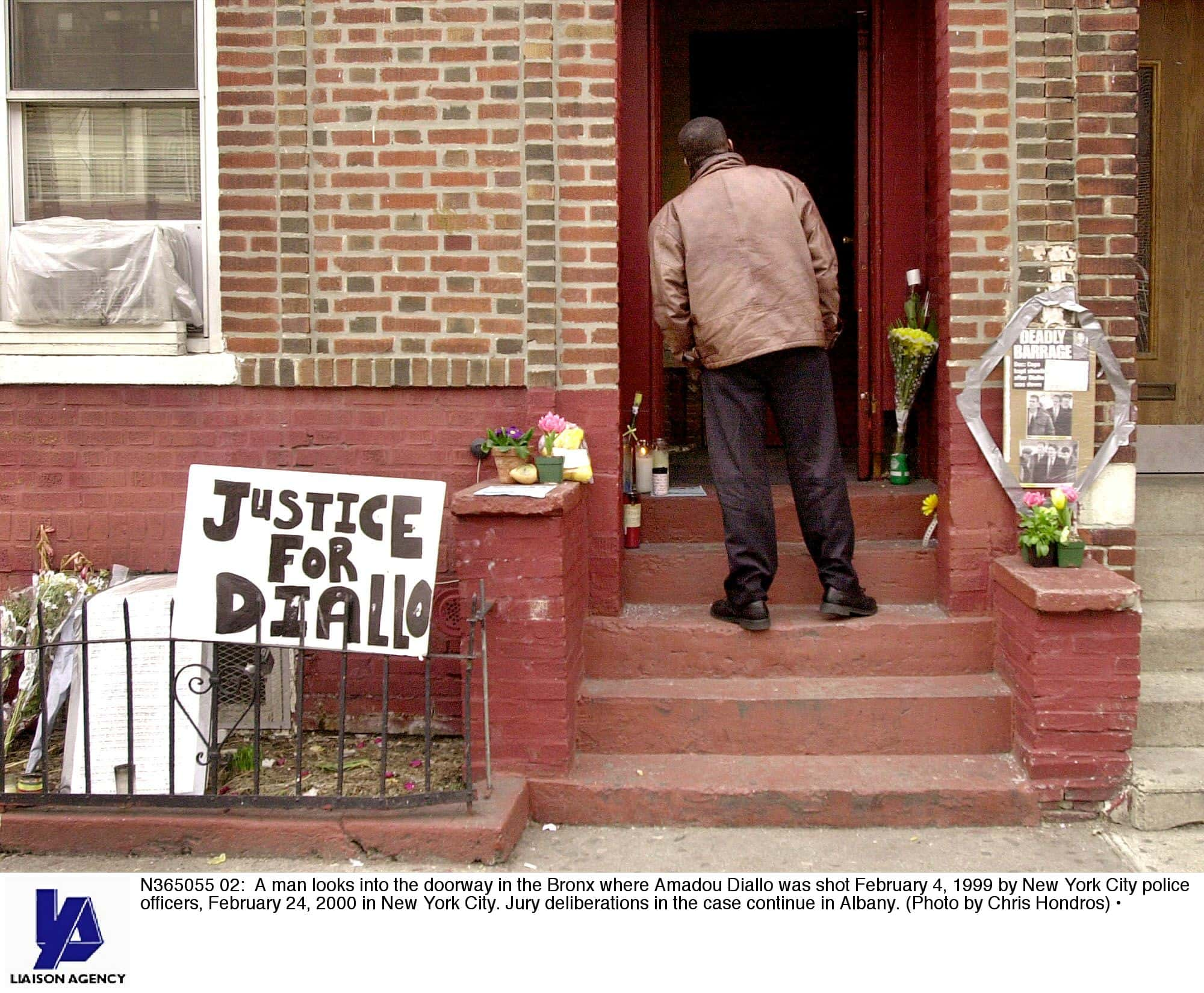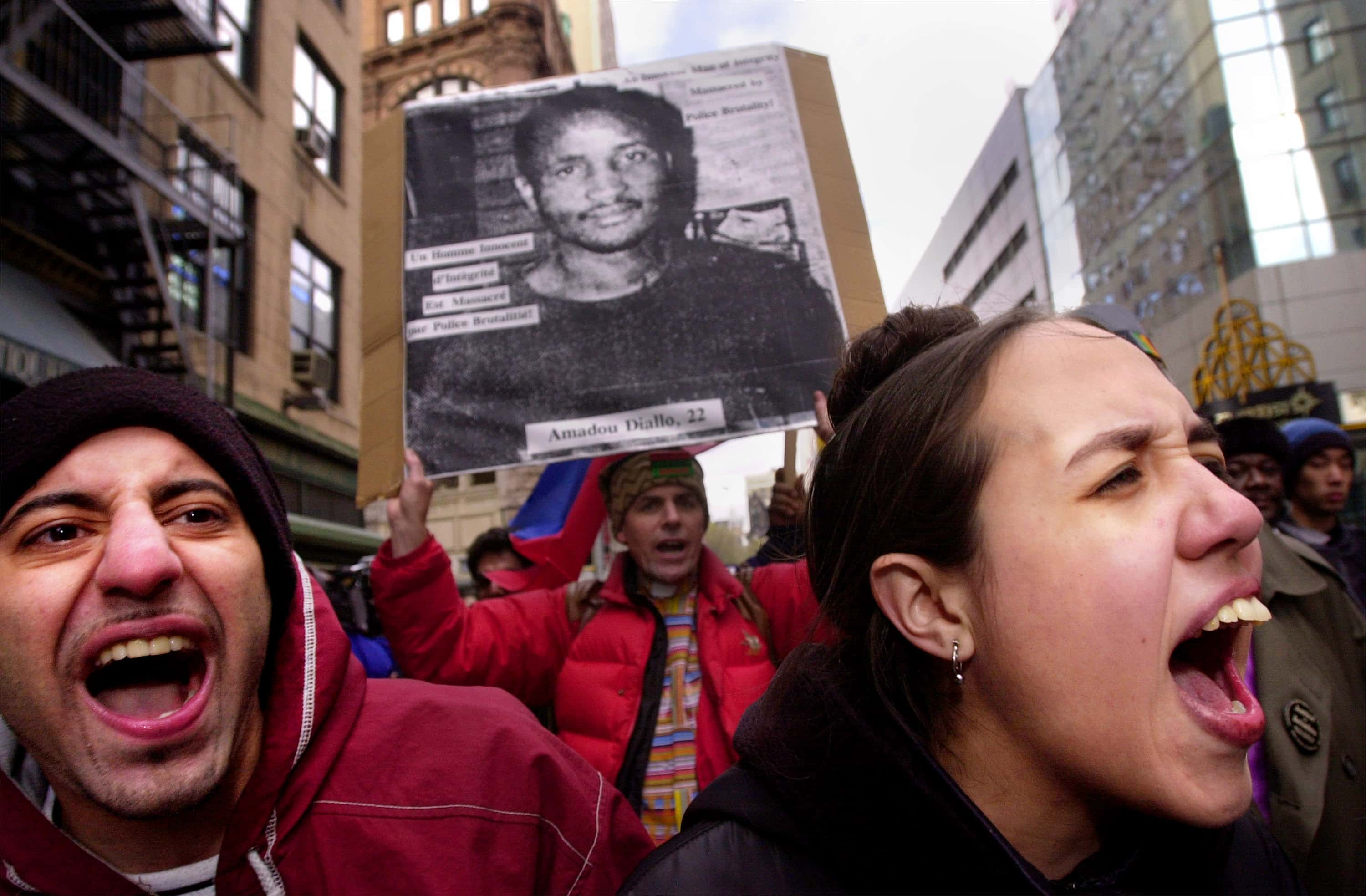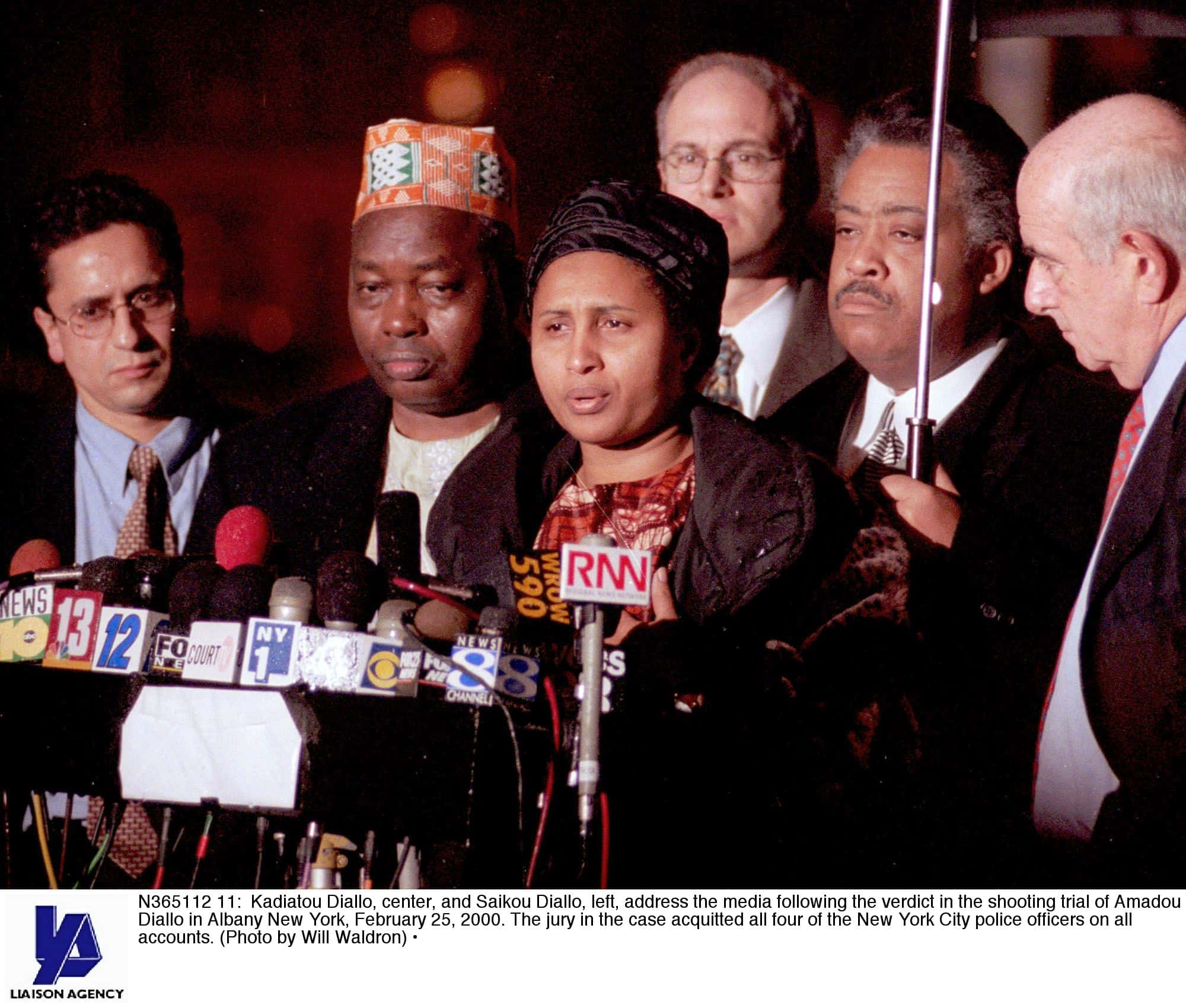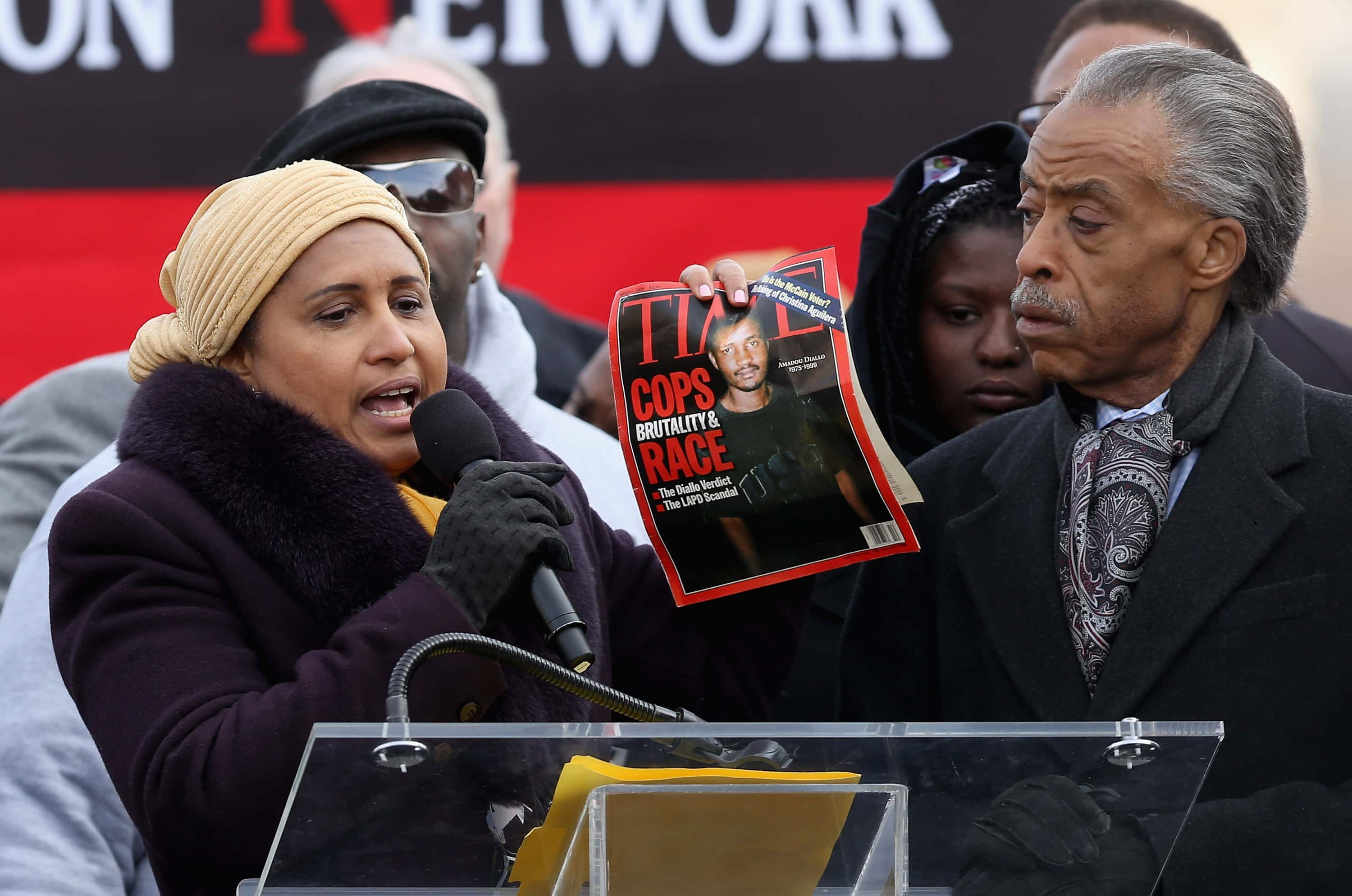'Trial By Media' shows how ununiformed officers who shot unarmed Amadou Diallo 41 times were acquitted

"I want to go to the United States because I want to go get a computer degree," Amadou Diallo, from Guinea, West Africa, told his mother in the late 1990s. His mother Kadijatou Diallo said he had a big smile on his face when she showed him his passport. "America was a hope to my son, who was on his way to achieving greatness," she said.
Diallo went to New York City and began living in the Bronx. The 22-year-old began street peddling to meet his expenses. On February 4, 1999, Diallo was in his apartment vestibule in Wheeler Avenue, Bronx, and was trying to enter his apartment when four men in plainclothes appeared from nowhere. They were in plainclothes, as Diallo reached into his pocket for his wallet to take his keys out, the men opened fire on him. They collectively fired a total of 41 shots at him. Diallo, who was unarmed, died at the spot. It was later revealed that the men were police officers.
The next morning, newspapers and tabloids covered Diallo's brutal murder with headlines saying 'Police fires 41 shots at unarmed peddler.' The brutal shooting at an unarmed black man by police officers sparked widespread protests in the city, with many stating that the incident was not just police murder, it was 'police slaughter.'

"We saw America differently before he went to the US. You don't see the reality in the news," Kadijatou Diallo said of the people in Guinea.
Diallo's killing made the atmosphere politically charged. It had happened shortly after Rudy Giuliani became the New York City Mayor, replacing African American Mayor David Dinkins, whose policies had reduced crime in the city. Giuliani also wanted to get the same results but his approach to achieving that differed. He placed police officers everywhere, they were in charge. Under his term, the elite Street Crime Unit was formulated, which executed the mayor's philosophy in action.
Minority communities at the time had begun complaining about police engaging in a systemic policy of harassment, especially against young black males. They particularly singled out the Street Crime Unit, the unit the four police officers accused of Diallo's murder belonged to. Critics stated that these officers were trained for situations of all kinds of threats, but not for the possibility of innocence.

As the news spread like wildfire, the New York Police Department gave their version of how the events on February 4 unfolded. The NYPD said Diallo had come home from work and was standing in the vestibule when the men came to their building in their unmarked car and plain clothes. They were reportedly looking for a suspect, and when they saw Diallo reach into his pocket for a wallet, one of the officers thought it was a gun and opened fire. The other three followed suit.
Meanwhile, the media continued "otherizing" Diallo, they never took the time to get to know who the 22-year-old really was. All reports referred to him as a "street peddler" or an "African migrant," and just focused on the "41 bullets," that was the sensational bit.
"When he went to America, he left behind everything, his family, his culture, his privilege," Diallo's mother said. "We had a good life, but he wanted to make it on his own." She added that her son could never have any issues with the police.

She was devastated by the news of her son's demise but gathered the courage to come to America to see for herself where he was shot. Kadijatou was received by police officers and Giuliani's men, who put her in a grand suite overlooking Fifth Avenue. Getting the mother's support would make their case stronger.
That was when she met activist Al Sharpton. She had seen him talking about her son on television, and she wanted to meet him. Confused about how her son died, Sharpton attempted explaining, and said: "It's the policy and politics that killed your son."
Amadou Diallo's shooting was a wake-up call for the minority community residents of the city. They now knew that the police needed no concrete reason to kill you. Kadijatou Diallo joined the people's protests as she exclaimed: "Not every black man on the street can be a suspect. Something's gotta change."
It was time to bury Diallo, and Sharpton along with many accompanied his mother back to Guinea for the final rights. A New York Post reporter also went along to cover more about who Diallo was. "Everyone who went to America usually came back successful, Amadou came back in a box, in a casket," he said as he saw people of Guinea weeping at the sight of his coffin at the airport.

The protests in the city continued, with at least 180 protesters arrested for civil disobedience. Mayor Dinkins was among them. Following the demonstrations and a District Attorney investigation into the case, the Grand Jury came to a decision. On March 25, 1999, the officers were indicted on charges of murder and reckless endangerment.
"For the first time I had hope," Kadijatou said. However, disappointment soon followed as the defense attorneys asked for a change of venue, claiming that the jurors in the Bronx would be prejudiced considering the protests. The request was granted and the venue was shifted to Albany, nearly 140 miles away from where the shooting occurred.
"I could not believe it. It was like a slap on the face. It was like moving a trial to a different world," the mother said. The case was set to be decided by six caucasian men, 2 caucasian women, and 4 African-American women.

While the defense played to the camera in the court house, banking on the emotions and tears of the four policemen, the prosecution did not even humanize Amadou Diallo. Not a word was said about who he was, the attorney did not even put his mother on the stand.
"They were painting him as suspicious," Kadijatou said. "How can you be suspicious in front of your own home?"
On February 25, 2000, the final verdict came out: Not guilty. All four of the officers were acquitted. "It was like saying to me that my child had caused his own death," the mother added. Kadijatou, since then, has never stopped talking about her son's tragic story. "Amadou came to the US to succeed and he never got a chance. I'll never stop talking. I'll continue speak," the mother said of her son's story. Kadijatou, an activist now, continues to talk about Amadou while fighting for the betterment of the black community in the city. Meanwhile, cases of racial profiling and police brutality have continued to date, with the latest being the fatal shooting of Ahmaud Arbery.
Netflix's docuseries 'Trial By Media' premieres May 11.